Upskilling to Adapt to Industry 4.0
- Rajat Sharma

- May 24, 2025
- 3 min read
Updated: May 29, 2025

Industry 4.0 requires automation professionals to adapt to changing demands.
Automation has been at the forefront of nearly every country, enterprise, individual, educational curriculum, and society. There can hardly be any intellectual discussion, business forum, or program in today’s world where automation does not take center stage. We work, live, breathe, follow, and preach automation in today’s application programming interface (API) economy and generative artificial intelligence (Gen AI)-obsessed world, which is leading us to the Fourth Industrial Revolution (Industry 4.0). Like Industry 4.0, automation also has a very wide spectrum and canvas to operate upon.
Automation in a manufacturing enterprise can be broadly found in three areas:
Corporate systems and business processesThis includes various aspects such as supply chain management, customer relationship management (CRM), enterprise resource planning (ERP), human resources, legal, and finance. Large ERP and workflow vendors have played a significant role in this domain. However, in recent years, the emergence of robotic process automation (RPA), integrated/intelligent process automation (IPA), and now Gen AI has further driven automation in these areas.
IT processesAutomation has revolutionized information technology (IT) processes, starting from the software development lifecycle (SDLC) and extending to continuous integration and continuous delivery (CI/CD). IT operations have also transformed from siloed applications, infrastructure, data, and security operations into an integrated cloud operations model, incorporating the principles of the DevSecOps value chain—further fueled by Gen AI.
Operational technologies (OT) processesThe automation of operational technologies focuses on the entire lifecycle of manufacturing systems—from concept and design to distribution and delivery. This involves leveraging technologies such as computer-aided design (CAD), computer-aided manufacturing (CAM), distributed control systems (DCS), programmable logic controllers (PLC), and ultimately, product lifecycle management (PLM). Through automation and Gen AI, the entire journey from ideation to disposal is streamlined and optimized.
Emergence of Automation Skills
Automation skills are emerging from the three core areas: corporate systems and business processes, IT processes, and OT processes. Numerous streams of specialist automation skills are developing in each category—from experts in ERP, SCM, and CRM systems to standalone workflow specialists.
For example, there is growing demand for specialists in IT service management (ITSM), tooling, SDLC process automation, and advanced Agile and DevSecOps experts. Other specialized roles include CAD automation experts and facilities process automation professionals working on shop floor systems like PLCs, DCS, and PLM.
The Convergence of Technologies
Industry 4.0 encompasses more than just the evolution of new technologies like machine-to-machine (M2M) communication, Internet of Things (IoT), machine learning (ML), augmented reality (AR), or blockchain. It represents the convergence of multiple technologies aimed at making enterprise manufacturing more efficient, effective, and predictive—leading to smart factories.
A prime example is the concept of digital twins, enabling world-class design, defect-free prototyping, and accelerated product launches. These digital twins can be used to generate multiple variants, allowing scalable production, flexibility, and responsiveness.
This convergence of business processes, IT, and OT—driven by data—is the essence of Industry 4.0. Structured and unstructured data from business systems, infrastructure logs, and operational protocols allow for intelligent data correlation, enabling predictive insights and proactive decisions.
Knowledge, Skills, and Responsibilities
Industry 4.0 demands a holistic understanding of technology integration, automation, and data-driven decision-making across business, IT, and OT processes. Professionals must adapt and acquire new skills and responsibilities.
Business Process Automation
KnowledgeUnderstand digital technologies such as IoT, cloud computing, edge computing, and connectivity protocols to integrate with SCM, ERP, and CRM systems.
SkillsGain programming/software development abilities, data management, and analytics proficiency to generate actionable insights from large datasets.
ResponsibilitiesStrategically shape digital transformation initiatives, identify automation opportunities, optimize workflows, and drive continuous improvement.
IT Automation
KnowledgeStay current with Agile, CI/CD, Kubernetes, service automation, observability tools, and cybersecurity.
SkillsDevelop programming expertise, implement automation tools, and gain analytics and cybersecurity proficiency.
ResponsibilitiesImplement and manage automation tools, orchestrate pipelines, automate ITIL processes, and collaborate across departments to integrate digital solutions.
OT Process Automation
KnowledgeUnderstand warehouse management, shop floor systems, MES, PLM, digital twin tech, AI, ML, collaborative robotics, and additive manufacturing.
SkillsAcquire environment automation, controls programming, and analytics skills for optimization.
ResponsibilitiesLead projects on digital integration, implement robotics and digital twins, reduce downtime, and enhance productivity through data-driven approaches.
Looking Ahead
Professionals must upskill to meet the evolving demands of Industry 4.0 and digital transformation. Embracing new technologies, programming, analytics, and strategic thinking is essential. Cross-disciplinary collaboration will be key to successful integration and enterprise-wide innovation. By Rajat Sharma
Workforce Development
March 2025 | Automation.com/Magazine


Comments